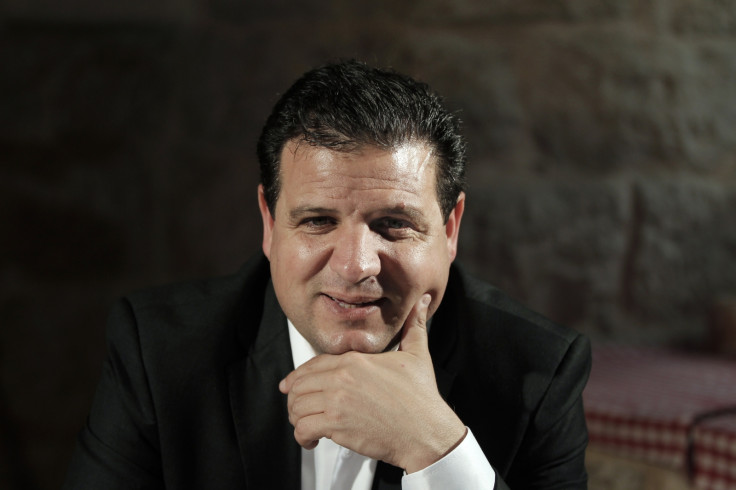Israeli elections: Will young lawyer Ayman Odeh lead an Arab Spring in the Jewish State?

An Arab lawyer is poised to make history by becoming the leader of the opposition in Israel's parliament, the Knesset, at the head of coalition of Palestinian nationalists, Communists and Islamists from across Israel's sizeable Arab minority.
Haifa native Ayman Odeh, 41, and the Joint List of diverse Palestinian Israeli parties that he heads are expected to get as many as 15 seats in the election on 17 March, putting them in third place after Benjamin Netanyahu's Likud Party and its rival Zionist Unity coalition, which are currently neck and neck in the polls.
Both Likud and the Zionists – headed by Labour leader Isaac Herzog and former cabinet minister Tzipi Livni – will try to strike a deal with smaller parties in order to get to the 61 seats needed to form a government, but could equally be forced to join forces in a "grand coalition", making the next biggest group of parties, Odeh's, the official opposition.
We deserve civil and national equality. We have heard a lot about social justice. We have been fighting for it for decades
That would entitle Odeh to request a seat on Israel's foreign affairs committee as well as giving a significant voice to Israel's 1.6 million Palestinian citizens – also referred to as "Arab Israelis" – at what is arguably one of the most polarised periods in Israeli history after the 2014 war in Gaza, spate of murders and riots in Arab-majority cities in Israel.
It also comes at a time of prominent anti-Arab rhetoric amongst senior Israeli politicians, with foreign minister Avigdor Lieberman recently calling for Arab Israelis who do not swear an oath of loyalty to the Jewish state should be "beheaded". During a TV debate, Lieberman told Odeh he was not wanted in Israel to which the Haifa-native replied he was "part of the scenery".
At the launch of the Joint List, Odeh said: "We deserve civil and national equality. We have heard a lot about social justice. We have been fighting for it for decades."
Remarkable achievements of Odeh
Recent events aside, Odeh's achievement in tying together a wildly diverse mix of parties has been remarkable. As leader of Hadash, an Arab Communist party that has one Jewish member, he has drawn in Islamist parties and Palestinian nationalists, and even reached out to Ultra-Orthodox Jews, an impoverished sector of Israeli society, as well as Ethiopian Jews in Israel.
The majority of Israeli-Palestinians would support the Joint List joining government. What is important to them is not ideology, it is seeing their leaders fighting discrimination and for equal rights and narrowing the socio-economic gap
Analysts say much of his success has been in placating the more extreme elements of Palestinian society, persuading Islamists, nationalists and Communists that it is more beneficial for Palestinian parties to be inside the Knesset tent rather than shouting from outside.
Although Odeh has ruled out joining a coalition with Herzog's Zionist Unity bloc – arguing he could never ally with a Zionist party – he is a pragmatist and his appeals to Jewish voters and other sectors of Israeli society is a new departure for Arab Israeli politicians.
In this, said Hugh Lovatt at the European Council on Foreign Relations, he is far more in tune with his constituents than Palestinian politicians of old.
"The majority of Israeli-Palestinians would support the Joint List joining government. What is important to them is not ideology, it is seeing their leaders fighting discrimination and for equal rights and narrowing the socio-economic gap," Lovatt said.
And that appears to be already reaping rewards, Lovatt added, expected turnout among Palestinian Israeli could be as high as 75% on 17 March, the highest yet and on a par with turnout among Jewish Israelis.
© Copyright IBTimes 2025. All rights reserved.






















